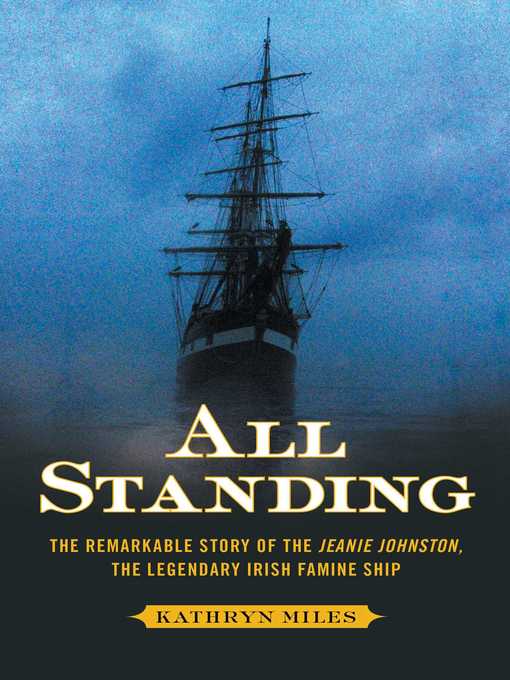
All Standing
The Remarkable Story of the Jeanie Johnston, The Legendary Irish Famine Ship
کتاب های مرتبط
- اطلاعات
- نقد و بررسی
- دیدگاه کاربران
نقد و بررسی

October 15, 2012
Having sailed on the recently recreated Jeanie Johnston, Miles, a professor of environmental writing at Unity College in Maine, is well-suited to tell the riveting tale of the only “coffin ship” to never lose a passenger during the great emigration from a famine-ravished Ireland in the mid-19th century. She relates the story of a man born on the Jeanie’s maiden voyage, and consequently named after the ship’s captain, medic, and entire crew: Nicholas Reilly (for very short). Interwoven with the story of Nicholas’s life in the U.S. (where he married, raised six kids, ran a business, and owned that holy grail of the American dream, “a house in the suburbs”) is a moving portrait of the Irish potato famine, a disaster exacerbated by logistical challenges plaguing relief efforts, religious schisms, and political tensions between the Crown and what was then a British colony. More than 100,000 immigrants perished during their attempts to escape their blighted homeland, and Miles pulls no punches in her portrayal of the waves of discrimination that crashed over those fortunate enough to survive the voyage. Nevertheless, Nicholas’s story and the flawless record of the Jeanie are morsels of hope amid the Great Hunger. Map. Agent: Wendy Strothman.

February 1, 2013
The Jeanie Johnston is credited with never losing a passenger in the years it carried Irish emigrants desperate to escape the potato famine and typhus epidemic in the 1840s and '50s. The ship is the central figure--indeed, almost a character--in this work in which Miles (environment writing, Unity Coll., Maine) describes the era of these so-called coffin ships, bringing together the stories of the shipbuilder, owner, crew, and passengers. Conditions on board are contrasted with those on other ships, revealing how the Jeanie Johnston's passengers had more space, better rations, and access to medical care. Although the term "passengers" implies a certain passivity, these travelers were expected to help clean the ship and cook their own food, despite severe weather and seasickness. Interspersed with the history of the famine and the ship is the story of Nicholas Johnston Reilly, born during the ship's maiden voyage, and his family's pursuit of the American dream. VERDICT The author makes good use of sources, and her details are vivid, but a minor quibble is the distracting tendency to summon thoughts or actions of historical figures even though not recorded (e.g., "[she] couldn't help but stare"). Recommended for readers of Irish and maritime history.--Megan H. Fraser, Univ. of California, Los Angeles, Libs.
Copyright 2013 Library Journal, LLC Used with permission.

























دیدگاه کاربران